Exam: Folk games with strong Vietnamese cultural features are gradually fading away in modern life, but that does not mean they are no longer attractive.
Write an essay discussing the issue: How to pass down folk games in today's life.
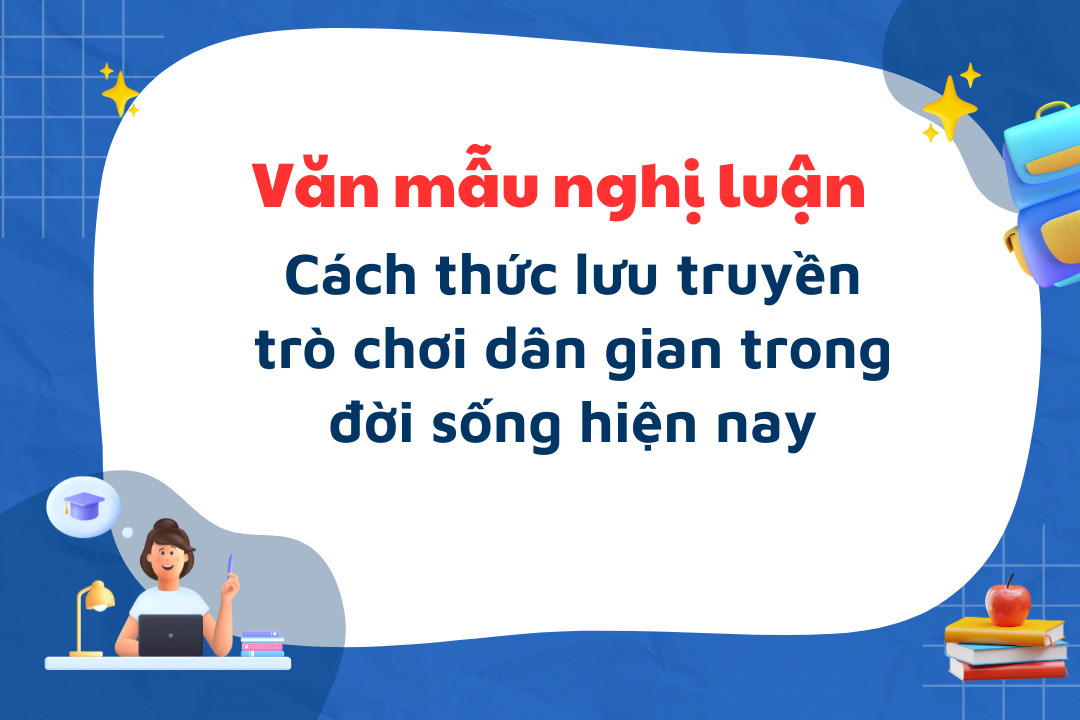
Sample essay: How to pass down folk games in today's life, lesson 1
In the context of globalization and strong development of digital technology , Vietnamese society is witnessing a worrying phenomenon: traditional folk games are gradually disappearing from daily life.
From playgrounds filled with laughter and games of marbles, jump rope, and tug of war of the 8X and 9X generations, today children are mainly attached to smartphones, tablets, and electronic games. This is not only an educational issue but also a major challenge to preserving national cultural identity in the modern era.
The reasons for the decline of folk games can be viewed from many different perspectives.
First of all, rapid urbanization has completely changed the living environment of children. High-rise apartment buildings and cramped living spaces no longer have spacious playgrounds like before. Increasing study pressure leaves children with little free time, while traditional recreational activities require collective space and time.
Besides, the strong penetration of technology also creates great attraction. The "digital native" generation was born and grew up with digital technology, naturally attracted to video games with vivid graphics and attractive sounds.
Mobile entertainment applications are highly personal, do not require direct interaction, and are suitable for the fast and convenient lifestyle of modern society.
No less important is the gap in intergenerational transmission. Many young parents, busy with work and life, do not have enough time or knowledge to teach their children about traditional games.
The gap between the grandparents’ generation and the grandchildren’s generation in their approach to entertainment also creates a gap in the transmission of traditional culture. Many modern families lack connection, each member is busy with work and study, and has little time to gather together to share valuable cultural experiences.
The consequences of this phenomenon on society are extremely serious and profound. Folk games are not only entertainment activities but also physical training, developing creative thinking, social skills and solidarity. The disappearance of these games means that the young generation loses the opportunity for comprehensive development, instead leading a passive, sedentary lifestyle.
Children today often have health problems such as obesity, myopia, and physical weakness due to lack of outdoor activities.
Particularly serious is the decline in communication and cooperation skills. Unlike individual video games, folk games require direct interaction, negotiation, cooperation and conflict resolution.
Without these experiences, children are at risk of being limited in developing soft skills - an important factor in the integration era. Many studies show that the current generation of young people have difficulty in direct communication, lack the ability to work in groups and solve problems creatively.
In terms of socio-culture, the risk of losing cultural identity is the most worrying thing. Each folk game carries within it cultural values, life philosophies and experiences of ancestors.
Their disappearance not only means losing a part of cultural heritage but also weakens the foundation of national identity in the context of globalization. When the younger generation no longer understands and experiences traditional values, they will gradually distance themselves from their cultural roots.
To solve this problem, practical and synchronous solutions from many sides are needed. Families play a key role in passing down folk games. Parents need to proactively create "family golden hours" - a time when electronic devices are not used to play folk games with their children. This both strengthens family bonds and teaches traditional culture.
Grandparents should be encouraged to participate in teaching their grandchildren traditional games, making this a regular and meaningful activity. Families need to create suitable space and time, perhaps on weekend afternoons or holidays, to experience traditional games together.
The education system also needs positive changes. The Ministry of Education and Training needs to incorporate folk games into the official education program, not only in Physical Education but also in Ethics, Nature and Society.
Schools should organize monthly folk game festivals to create useful playgrounds for students. Teachers need to be trained to be able to guide students effectively, turning learning into interesting and meaningful experiences.
It is important to know how to skillfully combine folk games with modern educational activities, creating appeal and suitability to the age psychology.
Communities and local authorities can make important contributions by creating an enabling environment. People's Committees at all levels should invest in building suitable public spaces for folk games in residential areas.
Organizing tournaments and competitions of folk games at ward, district and city levels should be done regularly. The government also needs to have policies to support clubs and groups that preserve folk games, creating conditions for them to operate effectively and sustainably.
Social organizations and businesses can also actively contribute to this conservation effort. Technology businesses should be encouraged to develop applications and educational games about folk games, skillfully combining modern technology and traditional values.
The media needs to produce many programs introducing and instructing folk games suitable for each age group, creating a wide spread in society. Cultural organizations and associations need to have specific plans to preserve and develop the treasure of folk games, and at the same time research and collect games that are at risk of disappearing.
Preserving folk games in modern society is not only the responsibility of one person but also the common task of the whole society. There needs to be synchronous coordination between families, schools, communities and state management agencies to create an ecosystem of conservation and sustainable development. It is important to know how to skillfully combine tradition and modernity, not being rigid in approach but always being creative so that folk games become attractive to the young generation. Only when this is done, can the precious cultural values of the nation continue to exist and develop in the digital age, contributing to building a society that is both modern and rich in cultural identity.
This is not only about preserving heritage but also investing in the future, helping the younger generation develop comprehensively and acquire profound human values from ancestral traditions.
Sample essay: How to pass down folk games in today's life, lesson 2
Folk games are an indispensable part of Vietnamese culture, deeply attached to the spiritual life of the people through many generations. Games such as “Blind Man’s Bluff”, “O An Quan”, or “Keo War” not only bring joy but also convey cultural values, teach life skills, and promote community cohesion.
However, in the context of modernization, with the development of technology and changes in lifestyle, many folk games are gradually being forgotten. This raises an urgent question: How to preserve and preserve folk games in today's life?
This paper will analyze the role, challenges, and solutions to preserve folk games, emphasizing the social significance of maintaining this cultural heritage.
Folk games are traditional recreational activities, passed down through generations, reflecting the spiritual life and cultural identity of Vietnam. They are not just games but also educational tools, helping children learn values such as cooperation, fairness, and respect for rules. For example, “Tug of War” teaches teamwork, while “O an quan” trains logical thinking and calculation.
According to the Ethnic and Development Newspaper, these games also act as a bridge between generations, creating opportunities for the community to gather, share joy, and strengthen social relationships. In an increasingly modern society, folk games play an important role in maintaining cultural identity and building a cohesive community where traditional values are respected.
The decline of traditional games stems from many reasons. Firstly, the development of technology, especially video games and social networks, has attracted the attention of the younger generation, causing traditional games such as “Sack Jumping” or “Kite Flying” to be less popular.
Second, urbanization reduces space for collective activities, as traditional playgrounds are replaced by modern amusement parks or amusement parks.
Third, the lack of awareness of the cultural value of folk games is also a major barrier. Many people, especially the younger generation, do not realize the profound significance of these games in preserving culture and connecting the community.
Changes in modern lifestyles have reduced children's exposure to folk games, leading to the risk of losing a valuable part of cultural heritage.
The decline of traditional games is not only a loss of a form of entertainment but also a decline in national cultural identity. When these games are no longer played, the younger generation loses the opportunity to learn about traditions, history, and social values such as solidarity and cooperation.
Furthermore, the lack of traditional group activities can lead to social isolation, especially as children become increasingly immersed in the digital world. This can weaken community bonds, affecting the social and mental development of individuals.
According to the Institute of Tourism Development, the loss of folk games also reduces the attractiveness of traditional culture to tourists, affecting the cultural tourism industry.
To preserve and promote folk games, many methods have been and are being applied, combining tradition and modernity:
Children learn to play traditional games from their families and friends during daily activities or festivals. For example, during the Tet festival, games such as “Tug of War” are often held, creating opportunities for the community to interact and bond.
Many schools have incorporated traditional games into their curriculum, such as organizing “Blind Man’s Bluff” during recess. These activities not only help children understand culture but also encourage interaction, promote team spirit and cooperation.
Folk games are integrated into tourism events and festivals, such as “Swinging” and “Kite Flying” in the Hung Temple Festival. According to the Institute of Tourism Development, these activities create opportunities for local communities and tourists to interact and raise awareness of cultural heritage.
Using apps and television to promote folk games, such as the program “Code from Antiquities” at the Hung Vuong Museum (Ministry of Culture, Sports and Tourism). Apps like Outing App also create interactive experiences, helping the younger generation explore culture through modern forms.
Heritage recognition programs and cultural events, such as the proposal of “Tug of War” to UNESCO and the organization of the Sports Festival in Dien Bien (Ethnic and Development Newspaper). These efforts not only enhance cultural values but also encourage community participation.
Some successful examples of preserving folk games include the tug-of-war game being proposed for recognition as an Intangible Cultural Heritage by UNESCO in 2013, demonstrating Vietnam’s efforts in preserving and promoting folk games globally. This not only enhances cultural values but also arouses national pride.
At the Hung Vuong Museum, the program "Code from Antiquities" uses a webapp for students to solve puzzles related to antiquities, helping them understand history and culture through a game format.
Dien Bien province has organized events such as the 10th Sports Congress (May 6, 2018 - May 10, 2018), introducing folk games such as "Con Throwing", "Stick Pushing", "Tug of War" into the competition, attracting community participation and contributing to preserving national culture.
Folk games are not only cultural heritage but also a bridge between generations, contributing to building a cohesive and identity-rich society. Preserving them not only preserves traditions but also creates a healthy playground, educating the younger generation about important social values.
To ensure that folk games continue to develop, active participation from all levels of society, from families, schools, to policy makers, is needed.
By combining traditional methods such as oral traditions and festivals with modern solutions such as education, technology, and policy, we can ensure that folk games not only survive but also thrive in modern life. This action not only preserves the past but also builds a future where traditional and modern values blend, creating a sustainable Vietnamese society.
Source: https://baonghean.vn/van-mau-nghi-luan-ve-cach-thuc-luu-truyen-tro-choi-dan-gian-trong-doi-song-hien-nay-10298806.html



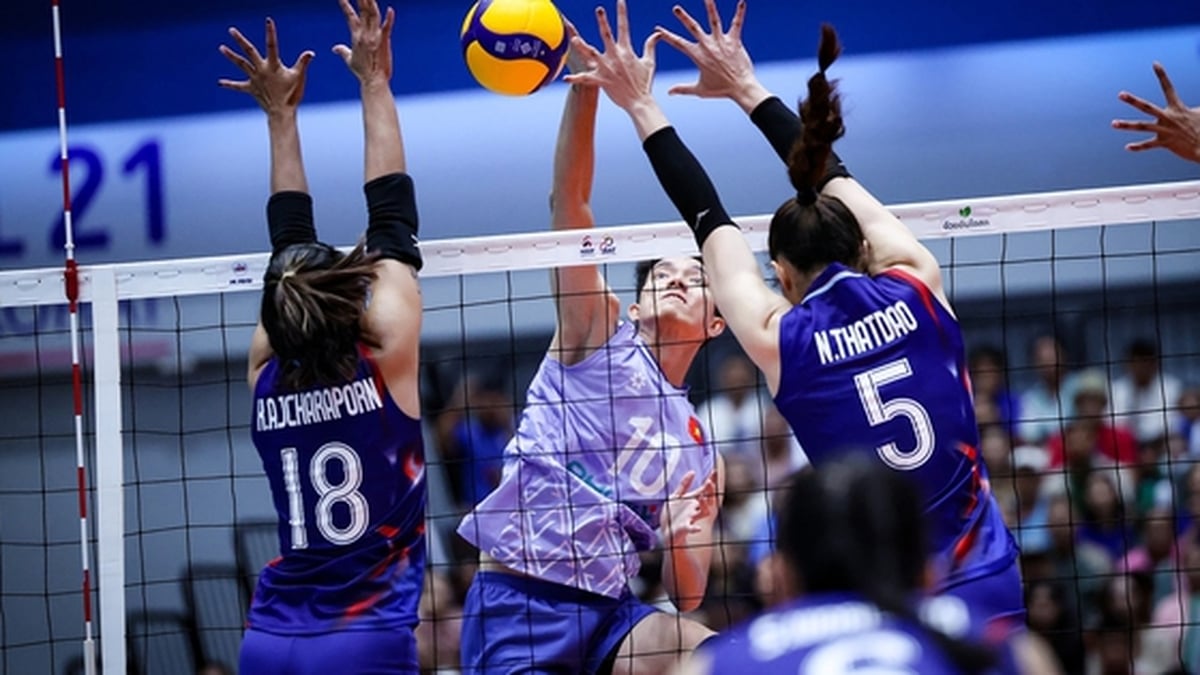
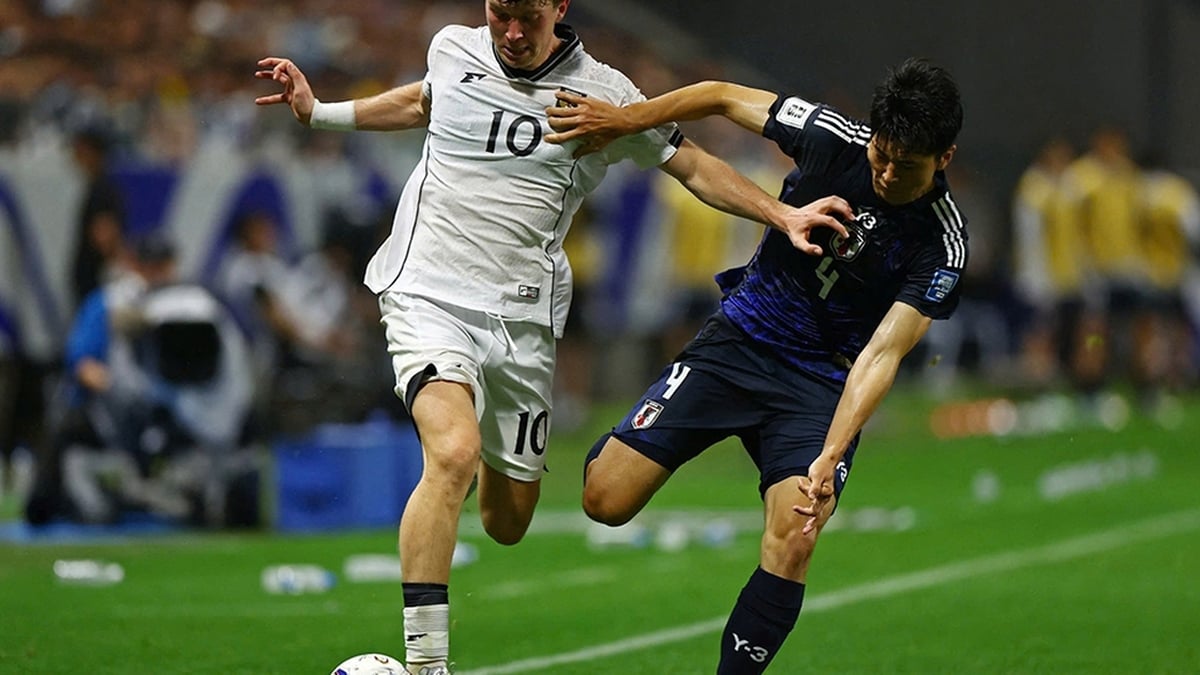




















![[Photo] Nghe An: Provincial Road 543D seriously eroded due to floods](https://vphoto.vietnam.vn/thumb/1200x675/vietnam/resource/IMAGE/2025/8/5/5759d3837c26428799f6d929fa274493)




































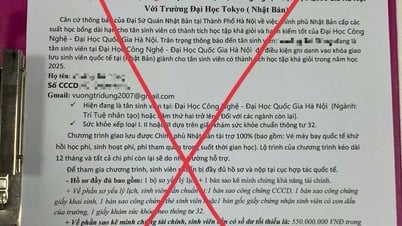






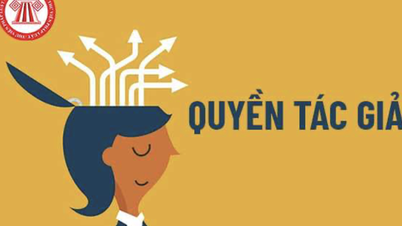




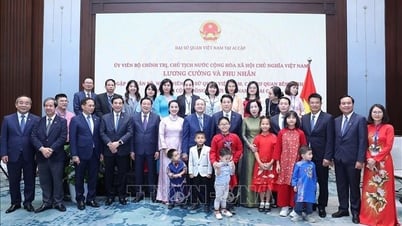

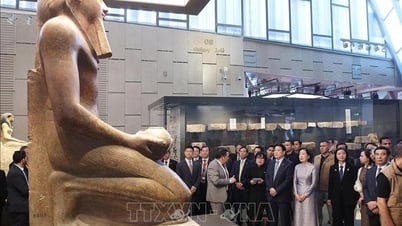






















Comment (0)